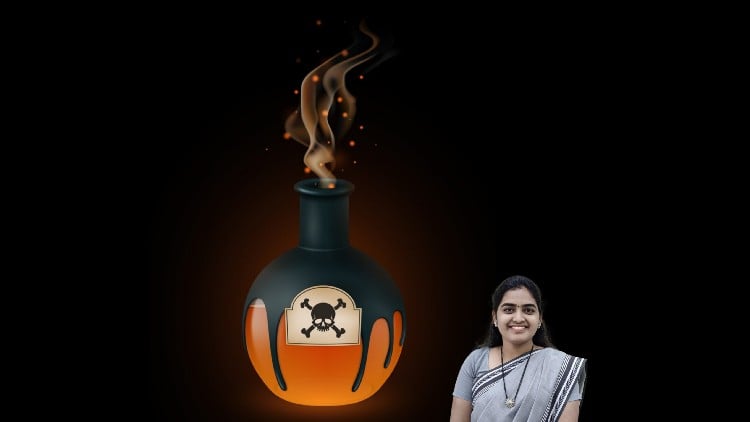
Explore the science of poisons in forensic toxicology, learn detection, effects, and real-case applications.
What you will learn
Identify and Classify Common Types of Poisons and Their Sources (Understand the classification of poisons: organic vs. inorganic, corrosive vs. non-corrosive)
Analyze the Mechanisms of Action of Different Toxic Substances (Explain how poisons affect biological systems at molecular, cellular, and organ-system levels)
Demonstrate Skills in Toxicological Testing and Analytical Techniques (Gain practical knowledge of laboratory methods used to detect and quantify poisons)
Apply Toxicological Evidence in Forensic Investigations and Legal Contexts (Prepare and present toxicological evidence in court and understand legal standards )
Add-On Information:
Note➛ Make sure your 𝐔𝐝𝐞𝐦𝐲 cart has only this course you're going to enroll it now, Remove all other courses from the 𝐔𝐝𝐞𝐦𝐲 cart before Enrolling!
- Explore the intricate convergence of chemistry, biology, and law, unraveling the silent evidence left by toxic substances in criminal and civil investigations.
- Delve into the nuanced pharmacokinetics and pharmacodynamics of xenobiotics, understanding how the body absorbs, distributes, metabolizes, and excretes various toxins.
- Investigate the unique analytical challenges posed by different biological matrices, from blood and urine to hair, tissue, and vitreous humor, each offering distinct insights into exposure.
- Master the principles behind state-of-the-art analytical techniques, including advanced mass spectrometry, gas chromatography, and liquid chromatography, essential for ultra-trace detection and quantification.
- Examine the complexities of post-mortem toxicology, where factors like putrefaction and drug redistribution significantly influence sample integrity and result interpretation.
- Gain critical understanding of quality assurance, method validation, and proficiency testing, ensuring the highest standards of reliability and admissibility for forensic evidence.
- Analyze the ethical considerations and legal precedents governing expert testimony, ensuring unbiased reporting and clear communication of complex scientific findings in court.
- Study the historical context of poisons and their detection, tracing the evolution of forensic toxicology from rudimentary tests to modern precision analysis.
- Uncover the role of forensic toxicologists in addressing contemporary public health challenges, such as the opioid crisis, designer drug proliferation, and environmental toxin exposure.
- Develop skills in interpreting complex toxicological data, distinguishing between therapeutic, toxic, and lethal concentrations, and correlating findings with observed physiological effects.
- Understand the critical importance of a meticulous chain of custody and proper evidence preservation techniques from crime scene to laboratory analysis.
- Explore the interdisciplinary collaboration required with pathologists, law enforcement, and legal professionals to construct comprehensive narratives from chemical evidence.
- Examine the impact of emerging psychoactive substances and novel intoxicants, and the continuous development of analytical strategies to detect these evolving threats.
- Learn to identify and mitigate analytical biases and interferences, crucial for generating robust and defensible toxicological conclusions.
- PROS:
- High Demand for Specialized Skills: Forensic toxicology is a niche field with a consistent need for highly trained professionals, offering stable and impactful career opportunities.
- Direct Contribution to Justice: Graduates will play a crucial role in legal investigations, directly contributing to solving crimes, ensuring public safety, and bringing clarity to complex cases.
- Intellectually Stimulating and Interdisciplinary: The course integrates chemistry, biology, pharmacology, and law, providing a rich, challenging, and continuously evolving learning experience.
- Diverse Career Pathways: Beyond traditional forensic labs, skills acquired are valuable in pharmaceutical research, environmental monitoring, public health agencies, and clinical toxicology.
- CONS:
- Emotionally Demanding Nature of Work: The direct exposure to sensitive and often tragic details of human suffering, death, and crime can be psychologically challenging for some individuals.
English
language